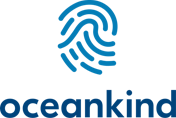| Grantee | ClientEarth ↗ |
| Grant Amount | $815,000 |
| Duration | Three Years |
With Oceans 5’s support, ClientEarth is working to hold the European Union to its commitment to make fishing sustainable. In theory, the EU is committed to being a leader in global ocean governance. That means leading by example to end overfishing and other unsustainable practices. Yet the EU is failing to live up to that commitment and to its own legal obligations. The stakes are high: the EU is important in its own right, with its vast territorial sea, fishing industry, and seafood market, and as a global player, setting standards that apply directly across the globe and influence others.
The twenty-seven countries that make up the EU manage their fisheries jointly through the Union’s Common Fisheries Policy. It is a complex legal framework. ClientEarth believes making information public about the Common Fisheries Policy and about public spending on fisheries will dispel the complexity, misunderstanding, and active secrecy that stand in the way of making EU fisheries sustainable. ClientEarth is taking advantage of a unique historical context: the European Green Deal is driving EU policy-making during this period, which is also a time of unprecedented public spending. The Green Deal’s commitment to transforming Europe’s economic model creates the context for ClientEarth’s action.
ClientEarth has three objectives it is working to achieve with Ocean 5’s support. The first is to secure concrete actions from EU institutions – specifically the European Commission (the EU’s executive body) and the Council of the EU (where Member States meet to take decisions) – to end overfishing. Every year the EU sets catch limits and distributes quotas to Member States for specific stocks. ClientEarth is working to make sure that an increased number of those catch limits are set in line with scientific advice, and that the EU puts in place remedial measures for species caught as bycatch. An important step is getting the EU institutions to publish more information about the process for setting catch limits. ClientEarth is engaging in advocacy to get the Council to publish in real time the policy documents it is relying on when setting catch limits. ClientEarth is also working with the European Parliament to get that body to put legal pressure on the Council to set limits sustainably. ClientEarth is also advocating with the European Commission to secure visible action against EU Member States which fail to implement a key aspect of EU fisheries law: the no-discards rule, which bans fishers from throwing fish that are subject to catch limits back into the sea. This rule is widely ignored, which leads to overfishing. That overfishing occurs not only because unscrupulous fishers take too many fish out of the sea and throw some back illegally; but also because catch limits are set too high, on the false assumption that illegal discarding is not happening. So even those following the rules end up contributing to overfishing. National authorities in the EU are supposed to enforce the no-discards rule, but in many places they are not doing it. The European Commission has the power to take Member States to court for failing to enforce the rule. ClientEarth is getting the Commission to flex its muscles.
The second objective is to close legal routes by which EU Member States subsidize overfishing. The European Maritime and Fisheries Fund distributes billions of euros to support sustainable marine environments and fisheries in Europe. ClientEarth is working to make sure that the money cannot and does not end up fueling overfishing. ClientEarth is also working to end an EU rule exempting fuel for fishing vessels from tax.
ClientEarth’s third objective is to stop the EU from revising its Common Fisheries Policy legislation and instead to get the EU to recognize that the law is good; what is missing is better implementation. The EU has world-class fisheries legislation that is not working as it should because the bloc’s Member States do not implement it properly. Re-opening that legislation risks levelling down the law. Instead, what the EU and its Member States need to do is level up implementation. And they need to do it transparently, so that playing by the rules becomes the norm. ClientEarth is contributing to the formal evaluation of the Common Fisheries Policy that is underway to make sure EU decision-makers understand this.
The EU is holding itself out as a model of green governance, in fisheries and other areas. With Oceans 5’s support, ClientEarth is making sure that the EU’s model of sustainable fisheries works in practice.





















